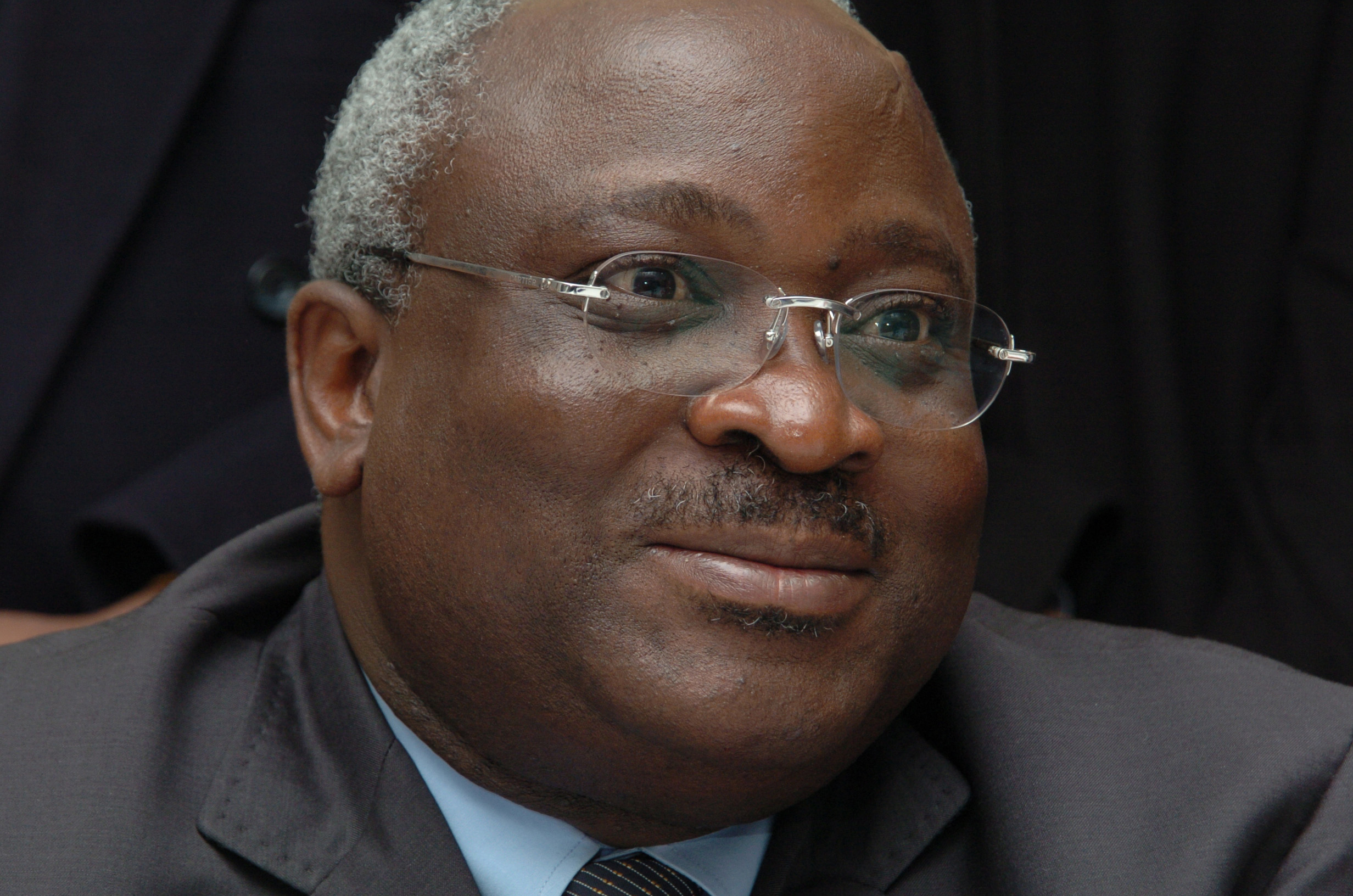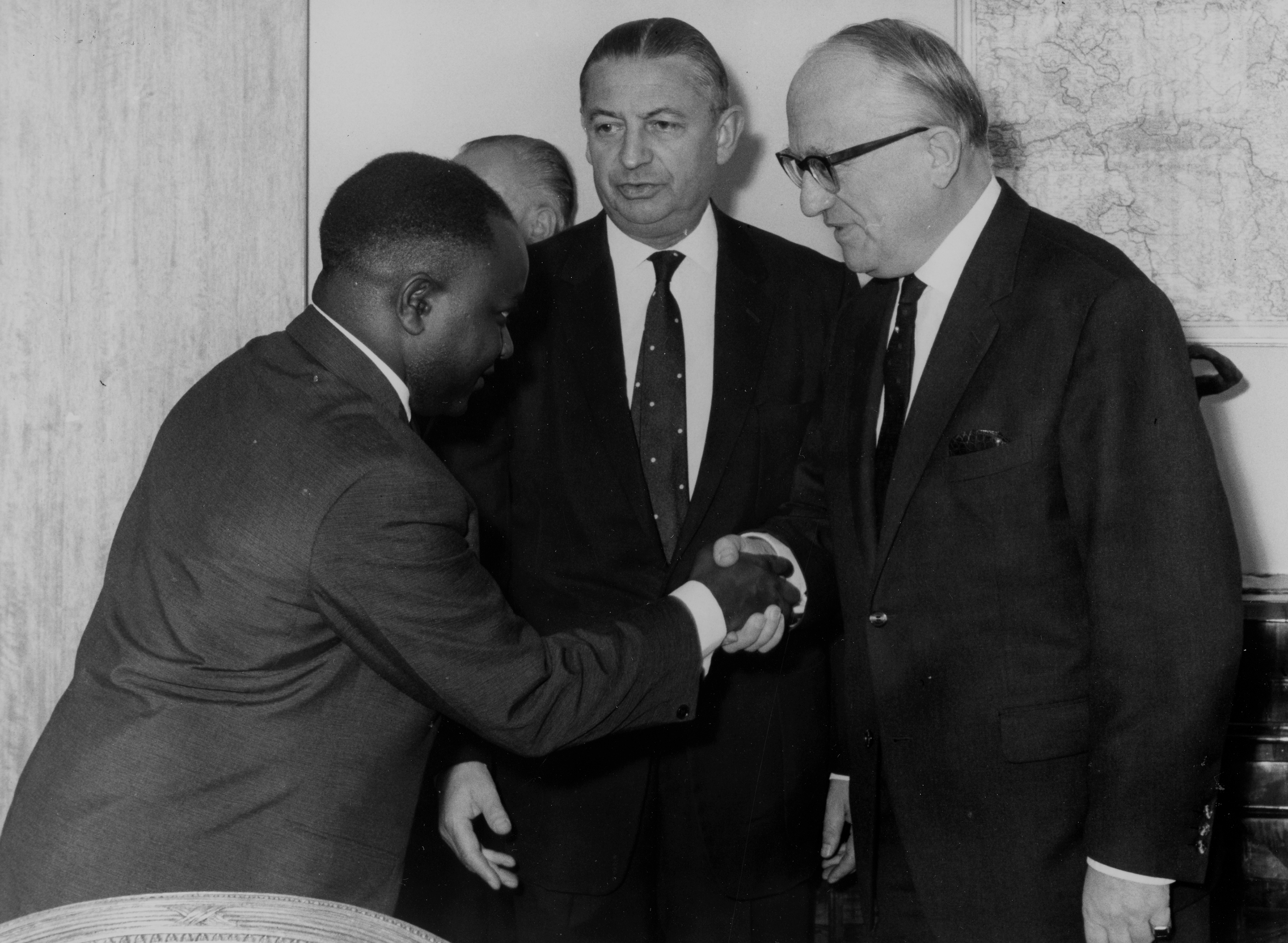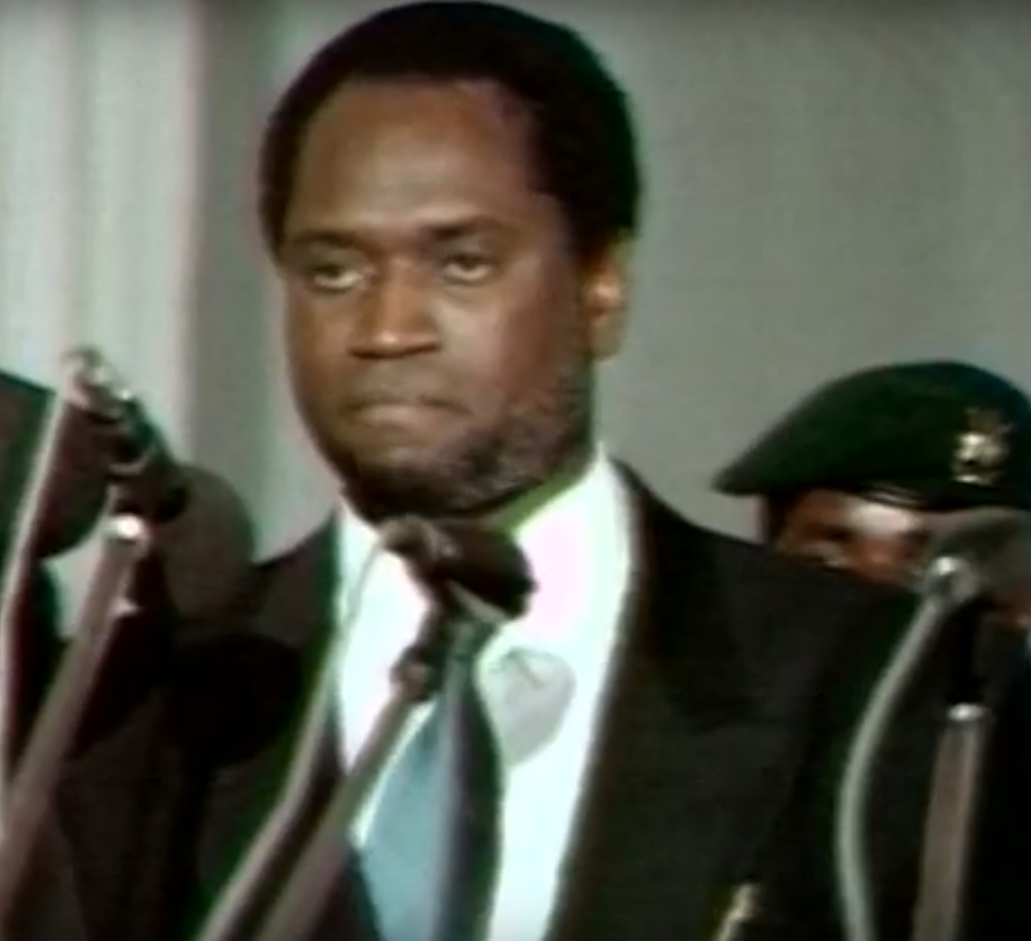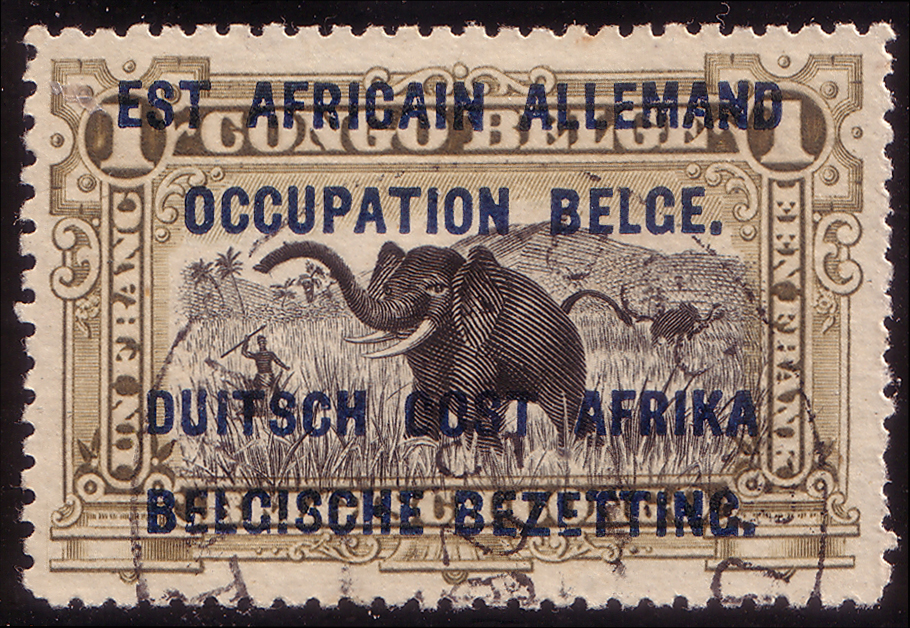|
UPRONA
The Union for National Progress (french: Union pour le Progrès national, UPRONA) is a nationalist political party in Burundi. It initially emerged as a nationalist united front in opposition to Belgian colonial rule but subsequently became an integral part of the one-party state established by Michel Micombero after 1966. Dominated by members of the Tutsi ethnic group and increasingly intolerant to their Hutu counterparts, UPRONA remained the dominant force in Burundian politics until the latter stages of the Burundian Civil War in 2003. It is currently a minor opposition party. History UPRONA's most famous Prime Minister and Burundian National Hero is Louis Rwagasore (assassinated in 1961). From that time until 1965, the party also had some Hutu support, and three of its Hutu members, including Pierre Ngendandumwe, became Prime Minister of Burundi. The party was taken over by President Michel Micombero in a ''coup d'état'' and became a pillar of the military dictatorships t ... [...More Info...] [...Related Items...] OR: [Wikipedia] [Google] [Baidu] |
Louis Rwagasore
Louis Rwagasore ( rn, Ludoviko Rwagasore, italics=no; 10 January 1932 – 13 October 1961) was a Burundian prince and politician, who served as the second prime minister of Burundi for two weeks, from 28 September 1961 until his assassination on 13 October 1961. Born to the Ganwa family of Burundian Mwami (king) Mwambutsa IV in Belgian-administered Ruanda-Urundi in 1932, Rwagasore was educated in Burundian Catholic schools before attending university in Belgium. After he returned to Burundi in the mid-1950s he founded a series of cooperatives to economically empower native Burundians and build up his base of political support. The Belgian administration took over the venture, and as a result of the affair his national profile increased and he became a leading figure of the anti-colonial movement. He soon thereafter became involved with a nationalist political party, the Union for National Progress (UPRONA). He pushed for Burundian independence from Belgian control, national u ... [...More Info...] [...Related Items...] OR: [Wikipedia] [Google] [Baidu] |
Prime Minister Of Burundi
This article lists the prime ministers of Burundi since the formation of the post of Prime Minister of Burundi in 1961 until the present day. The office of prime minister was most recently abolished in 1998, and reinstated in 2020 with the appointment of Alain-Guillaume Bunyoni. Counting both the Kingdom of Burundi, Kingdom and Republic periods, a total of sixteen people have served as prime minister, and one has served as acting prime minister. Additionally, two people, Pierre Ngendandumwe and Albin Nyamoya, served on two non-consecutive occasions. Key ;''Political parties'' * * * ;''Other factions'' * ;''Status'' * List of officeholders Prime ministers of the Kingdom of Burundi Prime ministers of the Republic of Burundi Timeline See also * Politics of Burundi * List of kings of Burundi * President of Burundi ** List of presidents of Burundi * Vice-President of Burundi * List of colonial governors of Ruanda-Urundi ** List of colonial residents of Burundi Notes Re ... [...More Info...] [...Related Items...] OR: [Wikipedia] [Google] [Baidu] |
Vice-President Of Burundi
The position of vice-president of the Republic of Burundi was created in June 1998, when a transitional constitution went into effect. It replaced the post of Prime Minister of Burundi, Prime Minister. History of the office Interim period (1998–2001) Pierre Buyoya, a former President of Burundi, President (1987–1993) who seized power in a 1996 Burundian coup d'état, 1996 military coup, was sworn in as President of the Republic on 11 June 1998. He appointed Frédéric Bamvuginyumvira, a Hutu member of the Front for Democracy in Burundi (FRODEBU), as 1st vice-president. Mathias Sinamenye, a Tutsi member of Buyoya's Union for National Progress (UPRONA) party, was appointed 2nd vice-president. According to the transitional constitution, the vice-presidency consisted of two posts: The 1st vice-president (Responsible for political and administrative affairs) and the 2nd vice-president (Responsible for economic and social affairs). Transitional period (2001–2005) A new tr ... [...More Info...] [...Related Items...] OR: [Wikipedia] [Google] [Baidu] |
Pierre Ngendandumwe
Pierre Ngendandumwe (1930 – 15 January 1965) was a Burundian politician. He was a member of the Union for National Progress and was an ethnic Hutu. On 18 June 1963, about a year after Burundi gained independence and amidst efforts to bring about political cooperation between Hutus and the dominant minority Tutsis, Ngendandumwe became Burundi's first Hutu prime minister. He served as prime minister until 6 April 1964 and then became prime minister again on 7 January 1965, serving until his death. Eight days after beginning his second term, he was assassinated by a Rwandan Tutsi refugee. Early life Pierre Ngendandumwe was born in 1930 in Ngozi Province, Burundi. He came from a prosperous Hutu family. In 1959 he earned a degree in political science from Lovanium University in the Belgian Congo. That year he bemoaned the domination of Urundi's administration by the Tutsi minority ethnic group. Career Following the completion of his education, Ngendandumwe worked in the Belgian ... [...More Info...] [...Related Items...] OR: [Wikipedia] [Google] [Baidu] |
Burundian Legislative Election, 2015
Parliamentary elections were held in Burundi on 29 June 2015. The vote had been initially set for 5 June 2015, alongside local elections, but it was delayed due to unrest.Clement Manirabarusha"Burundi says has delayed elections amid prolonged protests" Reuters, 3 June 2015. Indirect elections to the Senate occurred on 24 July. Background In the previous legislative election in 2010, the ruling National Council for the Defense of Democracy – Forces for the Defense of Democracy won a large majority. The election was boycotted by most opposition parties following claims of fraud in the local elections held on 24 May. This left the opposition Union for National Progress and Front for Democracy in Burundi–Nyakuri (which were supportive of the ruling party) the only other parties to win seats. The announcement by the ruling party that the incumbent President of Burundi, Pierre Nkurunziza, would run for a third term in the presidential election, which was planned to be held on 26 ... [...More Info...] [...Related Items...] OR: [Wikipedia] [Google] [Baidu] |
Pierre Buyoya
Pierre Buyoya (24 November 1949 – 17 December 2020) was a Burundian army officer and politician who served two terms as President of Burundi in 1987 to 1993 and 1996 to 2003. He was the second-longest serving president in Burundian history. An ethnic Tutsi, Buyoya joined the sole legal party, UPRONA and quickly rose through the ranks of the Burundian military. In 1987, he led a military coup d'état that overthrew his predecessor Jean-Baptiste Bagaza and enabled him to seize power. Leading an oppressive military junta, Hutu uprisings in 1988 led to the killings of an estimated 20,000 people. Buyoya then established a National Reconciliation Commission that created a new constitution in 1992 which allowed for a multi-party system and a non-ethnic government. Running as a candidate in the 1993 Burundian presidential election, he was defeated by Hutu candidate Melchior Ndadaye of the FRODEBU opposition party. Ndadaye was assassinated during another attempted coup after only th ... [...More Info...] [...Related Items...] OR: [Wikipedia] [Google] [Baidu] |
Burundi
Burundi (, ), officially the Republic of Burundi ( rn, Repuburika y’Uburundi ; Swahili language, Swahili: ''Jamuhuri ya Burundi''; French language, French: ''République du Burundi'' ), is a landlocked country in the Great Rift Valley at the junction between the African Great Lakes region and East Africa. It is bordered by Rwanda to the north, Tanzania to the east and southeast, and the Democratic Republic of the Congo to the west; Lake Tanganyika lies along its southwestern border. The capital cities are Gitega and Bujumbura, the latter being the country's largest city. The Great Lakes Twa, Twa, Hutu and Tutsi peoples have lived in Burundi for at least 500 years. For more than 200 of those years, Burundi was an independent Kingdom of Burundi, kingdom, until the beginning of the 20th century, when it became a German colony. After the First World War and German Revolution of 1918–19, Germany's defeat, the League of Nations "mandated" the territory to Belgium. After the Secon ... [...More Info...] [...Related Items...] OR: [Wikipedia] [Google] [Baidu] |
Jean-Baptiste Bagaza
Jean-Baptiste Bagaza (29 August 19464 May 2016) was a Burundian army Officer (armed forces), officer and politician who ruled Burundi as President of Burundi, president and ''de facto'' Military dictatorship, military dictator from November 1976 to September 1987. Born into the Tutsi, Tutsi ethnic group in 1946, Bagaza served in the National Defence Force (Burundi)#Historical outline 1962–1993, Burundian military and rose through the ranks under the rule of Michel Micombero after his rise to power in 1966. Bagaza deposed Micombero in 1976 Burundian coup d'état, a bloodless coup d'état in 1976 and took power himself as head of the ruling Union for National Progress (''Union pour le Progrès national'', UPRONA). Despite having participated in the Ikiza, genocidal killings of 1972, he introduced various reforms which modernised the state and made concessions to the country's ethnic Hutu majority. His regime became increasingly repressive after it became consolidated in 1984, espe ... [...More Info...] [...Related Items...] OR: [Wikipedia] [Google] [Baidu] |
Burundian Civil War
The Burundian Civil War was a civil war in Burundi lasting from 1993 to 2005. The civil war was the result of longstanding ethnic divisions between the Hutu and the Tutsi ethnic groups. The conflict began following the first multi-party elections in the country since its independence from Belgium in 1962, and is seen as formally ending with the swearing-in of President Pierre Nkurunziza in August 2005. Children were widely used by both sides in the war. The estimated death toll stands at 300,000. Background Before becoming subject to European colonial rule, Burundi was governed by an ethnic Tutsi monarchy, similar to that of its neighbor Rwanda. German, and subsequently Belgian, colonial rulers found it convenient to govern through the existing power structure, perpetuating the dominance of the Tutsi minority over the ethnic Hutu majority. The Belgians generally identified the ethnic distinctions in Burundi and Rwanda with the following observations: the Twa who were shor ... [...More Info...] [...Related Items...] OR: [Wikipedia] [Google] [Baidu] |
Michel Micombero
Michel Micombero (26 August 194016 July 1983) was a Burundian politician and army officer who ruled the country as ''de facto'' military dictator for the decade between 1966 and 1976. He was the last Prime Minister of the Kingdom of Burundi from July to November 1966, and the first President of the Republic from November 1966 until his overthrow in 1976. Micombero was an ethnic Tutsi who began his career as an officer in the Burundian military at the time of Burundi's independence in 1962. He studied abroad and was given a ministerial portfolio on his return. He rose to prominence for his role in helping to crush an attempted coup d'état in October 1965 by ethnic Hutu soldiers against the Tutsi-dominated monarchy. In its aftermath, in 1966, Micombero himself instigated two further coups against the monarchy which he perceived as too moderate. The first coup in July installed a new king on the throne, propelling Micombero to the role of prime minister. The second coup in No ... [...More Info...] [...Related Items...] OR: [Wikipedia] [Google] [Baidu] |
Ruanda-Urundi
Ruanda-Urundi (), later Rwanda-Burundi, was a colonial territory, once part of German East Africa, which was occupied by troops from the Belgian Congo during the East African campaign in World War I and was administered by Belgium under military occupation from 1916 to 1922. It was subsequently awarded to Belgium as a Class-B Mandate under the League of Nations in 1922 and became a Trust Territory of the United Nations in the aftermath of World War II and the dissolution of the League. In 1962 Ruanda-Urundi became the two independent states of Rwanda and Burundi. History Ruanda and Urundi were two separate kingdoms in the Great Lakes region before the Scramble for Africa. In 1897, the German Empire established a presence in Rwanda with the formation of an alliance with the king, beginning the colonial era. They were administered as two districts of German East Africa. The two monarchies were retained as part of the German policy of indirect rule, with the Ruandan king (''mwami ... [...More Info...] [...Related Items...] OR: [Wikipedia] [Google] [Baidu] |
National Assembly (Burundi)
The National Assembly is the lower chamber of Parliament in Burundi. It consists of 100 directly elected members (or deputies) and between 18 and 23 co-opted members who serve five-year terms. Deputies are elected in 17 multi-member constituencies using a party-list proportional representation system in accordance with the D'Hondt method. Political parties and lists of independent candidates must receive over 2% of the vote nationally to gain representation in the National Assembly. History As a country that has been devastated by civil war and persistent ethnic violence since its independence in 1962, Burundi's new constitution (approved in a February 2005 referendum) requires that 60% of the deputies be from the Hutu ethnic group, while the remaining 40% come from the Tutsi ethnic group. In addition, three co-opted members represent the Twa ethnic group. Women must occupy at least 30% of the seats in the National Assembly. Elections to the National Assembly took place on 4 J ... [...More Info...] [...Related Items...] OR: [Wikipedia] [Google] [Baidu] |







